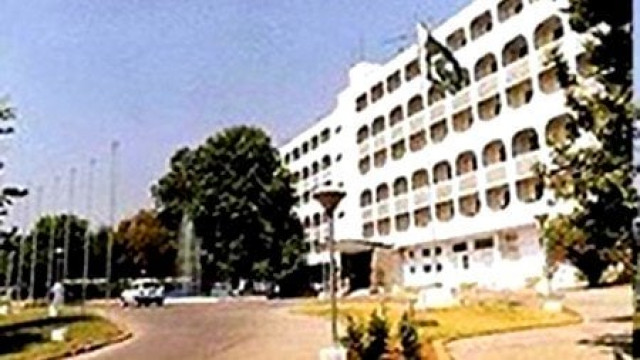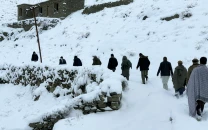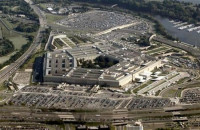Pakistan concerned at ME escalation
Pakistan concerned at ME escalation

Amid fears of a potential all-out conflict in the Middle East in the wake of the ongoing hostilities between Iran and Israel, Pakistan on Wednesday expressed deep concern over the escalating hostilities in the region, urging all parties to prioritise peace.
According to an internal assessment, the government has been advised to be on high alert. The heightened fears of an all-out war have been triggered by a direct confrontation between Iran and Israel. Iran on Tuesday night launched a barrage of missiles into Israel in order to retaliate to the recent assassinations of the Hamas and Hezbollah leadership.
Iran had carried out similar strikes in April after its diplomatic mission in Damascus was bombed by the Israeli fighter jets, killing senior military commanders. But those attacks seemed to have aimed at making a point that Iran could hit back at Israel.
The latest missile strikes were more serious in nature, according to experts.
"In recent months, Israel has increasingly acted in violation of international law and the UN Charter resulting in grave humanitarian crisis. Israel has endangered regional peace and security with the ongoing genocide in Gaza. The recent invasion of Lebanon has further intensified these tensions, affecting the lives of innocent civilians," Foreign Office spokesperson said in a statement.
The people of Palestine, Lebanon, and the wider region deserved to live free from fear and violence. It was crucial for all sides to step back from the brink and for the international community to take swift action to de-escalate the situation.
The prevailing culture of impunity and disregard for international law must be addressed urgently, it was stressed.
The spokesperson reiterated Pakistan's call for the UN Security Council to uphold peace and security in the region, safeguard Lebanon's sovereignty, and put an end to the ongoing humanitarian crisis in Gaza.
"Pakistan has consistently advocated for a two state solution as the key to enduring peace in the Middle East with a just and comprehensive solution to the Palestinian question anchored in international law and in line with relevant UN and OIC resolutions," it was further added.
The Iranian authorities claimed that the missile strikes had achieved 90 per cent of their objectives. However, both Israel and the US insisted that the strikes had caused little or no damage.
But the development has raised the specter of a full-scale war between Iran and Israel. Hardline Israeli leaders have been calling for a decisive blow to Iran. One of the former prime ministers suggested that Iran had provided a golden opportunity to Israel for the first time in 50 years to bomb its nuclear and strategic facilities.
The Iranian supreme leader, however, warned that any future attack by Israel would invoke a painful response from Iran.
The unfolding situation in the Middle East has set alarm bells ringing in Pakistan. Behind the scene, relevant quarters have been discussing the issue and potential fallout for the country.
Sources said Pakistan's assessment suggested that an all-out war between Iran and Israel was a "real possibility" now. Since Pakistan and Iran are neighbours, Pakistani authorities are worried over the negative fallout of any conflict.
According to sources, Pakistan is looking at the two major implications: (a) impact of the Iran-Israel war and (b) the economic fallout of the wider conflict in the region.
Pakistan is living in a difficult neighborhood where unrest and instability in Afghanistan has undermined the country's progress. The worry is if Iran-Israel war erupts this would make matters worse for Pakistan, sources conceded.
Following the Iranian strikes on Israel, many people were questioning as to why Pakistan was standing on the fence.
Diplomatic sources said Pakistan always adopted a principled stance on the Israeli-Palestinian conflict. Islamabad has been advocating for a diplomatic solution to the problem. The sources said those who were in favour of Pakistan getting involved directly in the conflict were naive and did not understand the diplomatic intricacies.
While internal assessment may have painted a grim picture, authorities hope better sense prevails and major players may prevent Israel from carrying out any reckless strikes against Iran.



















COMMENTS
Comments are moderated and generally will be posted if they are on-topic and not abusive.
For more information, please see our Comments FAQ